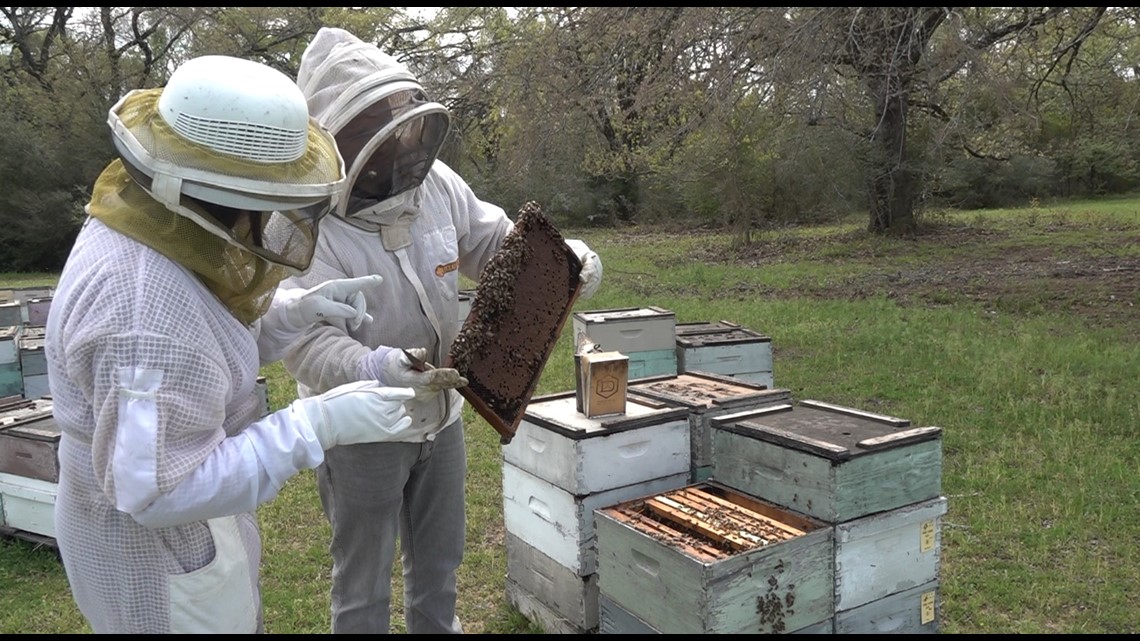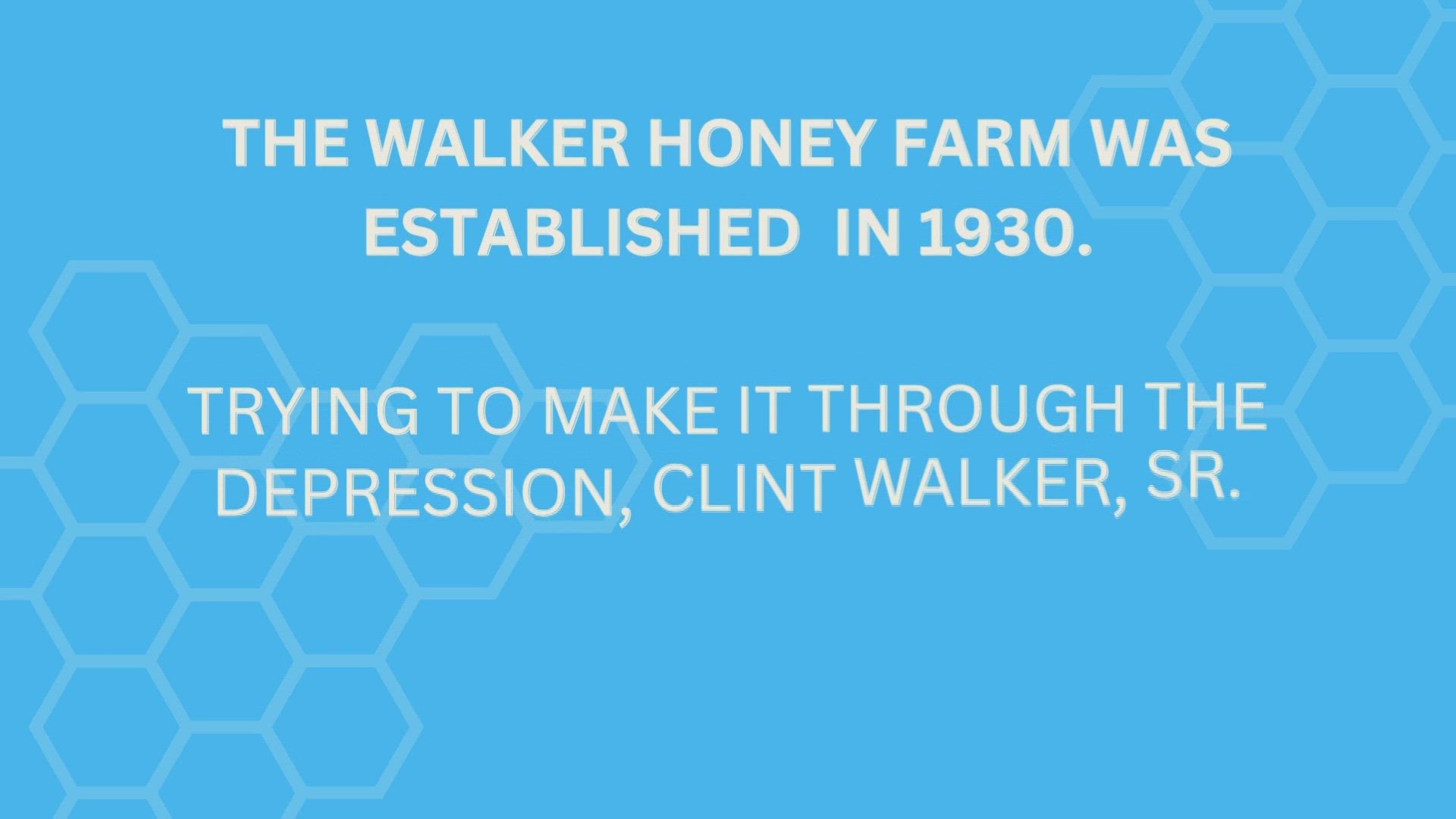ROGERS, Texas — Honeybees are disappearing in droves, leaving beekeepers worried about what that could mean for the future of our food chain.
Blake Butler at Walker Honey Farm in Rogers, Texas said nationally beekeepers are loosing 50% of their hives per year, which is much higher than when colony collapse first began in the early 2000s.
Today, the farm is seeing a similar problem to those nationwide, but they've been open since 1930 and know how to make it through many hurdles.
"We've been able to diversify over many years," Blake Butler, a manager with the farm said.
Honey wine known as mead, honey soap, candles and of course all natural honey are sold at the store.
They also offer classes to help people understand how to become a beekeeper themselves, something Butler said is important to have if we want to save the bees.
Butler added that the business has come a long way since opening during the depression.
It was a gamble for G.C. Clint Walker Sr. to start this "sweet" journey with his family. When his grocery store went under, Walker knew it was time to start something new.
To read more on the history of the Walker Honey Farm, click here.
The walker honeybees are hard at work today, harvesting from the same plant species their bee ancestors did a century ago, the Yaupon Holly.
Thousands of bees will have fresh honey ready to be transported from Gause to Rogers, where it'll be bottled in just a few weeks.
When Butler and Texas Today Reporter Meredith Haas went out to check the hives, it looked like they were doing alright.


There were no varroa mites in the brood of this hive, which is a great sign that this hive is healthy.
The varroa mite is one of the causes scientists pointed out when colony collapse persisted. It's basically a parasite that laches onto a bee and sucks the life out of it.
Imagine a tick large enough to latch on to you and just suck all the life out of you, then breed and do the same thing to your family.
That, along with pesticides has been a route cause for colonies vanishing.
"We've asked for federal assistance to stop this," Butler said.
He added that it seems no one is taking it as serious as they should be, but there's a way to think about this that really puts everything into perspective.
If the U.S. lost half its livestock a year, there'd be a huge issue at hand. Well, Butler said, that's what's happening here and it will have detrimental impacts if not reversed in the next decade.
The honeybee is the small link that keeps a very large food chain together.
They're the ones pollinating the crops, flowers, plants and in turn helping us have food on our tables and feed for our cows.
Without bees, we have nothing.
Butler recommends people start doing their part on a small scale. Whether that looks like becoming a hobby beekeeper or just leaving bees be in the wild.
Swarm season is fast approaching so if you see a swarm on your house or porch, maybe even on a branch, leave it alone.
This is a swarm in transit that has left its hive in search of building a new colony. This is a good thing.
The more colonies there are, the brighter our futures get.

